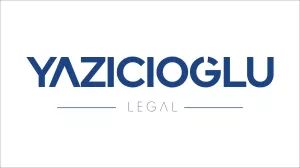1. General Legal Framework
1.1 General Legal Background
At present, Türkiye lacks specific laws solely dedicated to regulating AI or machine learning (ML). However, considering AI's broad implications, laws governing general legal domains such as human rights, privacy, data protection, intellectual property, consumer protection, criminal conduct, and tort may be deemed relevant.
Constitution of the Turkish Republic (Constitution)
While many human rights enshrined in the Constitution may be relevant depending on the application of AI, current global discussions highlight the following as particularly pertinent, namely the right to (i) life, (ii) health, (iii) fair trial, (iv) respect for private and family life, (v) protection of personal data, (vi) freedom of speech, (vii) equality before the law, (viii) to own property, and (ix) prohibition of discrimination.
Turkish Civil Law (TCiC) and Turkish Code of Obligations (TCO)
AI and personality rights intersect, especially in discussions as to whether recognising AI as a legal entity and the applicable rules when a person's personality rights are harmed. These issues are primarily governed by the TCiC.
Alongside the TCiC, TCO is the primary law that governs compensation for harm, both physical and non-physical (moral damages), caused by tortious actions, whether directly or indirectly inflicted. These well-established principles will undoubtedly be applied to situations involving AI.
It is important to note that the TCO also governs the broader legal framework for enforcing all types of contracts.
Turkish Data Protection Law No 6698 (DP Law)
The DP Law regulates the obligations of both natural and legal persons in processing personal data, outlining procedures and principles to be followed, and it aims to protect the fundamental rights and freedoms of individuals in the processing of personal data.
Consequently, this protection becomes relevant when personal data is processed during an AI model's development, training, deployment, or use.
Law on Intellectual and Artistic Works (LIAW) and Industrial Property Law (IPL)
The LIAW defines and protects the moral and financial rights (ie, copyrights) of authors of intellectual and artistic works, performing artists, phonogram producers, film producers, and broadcasters.
The IPL encompasses applications linked to trademarks, geographical indications, designs, patents, utility models, and traditional product names, along with their registration, and legal procedures and sanctions for rights infringements.
Law on Product Safety and Technical Regulations (PS Law)
This law ensures the safety of products within the country, detailing compliance with safety standards and technical regulations. It defines the responsibilities of manufacturers, importers, and distributors, establishes monitoring mechanisms, and sets penalties for non-compliance, ensuring consumer access to safe products.
Turkish Criminal Law (TCrC)
Given the potential for AI to be involved in crimes, such as illegally accessing a computer system by using AI, or death or injury caused by a self-driving car, various articles of TCrC may be applicable. According to the TCrC, criminal responsibility is personal, meaning only a natural person can be held as a perpetrator of a crime. Whether the developers or users of AI technology can be held responsible for the relevant crime is assessed based on whether there was intent or neglect by these actors.
Other Laws and Regulations
Depending on AI's use, it may invoke various laws and regulations, such as consumer protection law, the Law on the Protection of Competition ("Competition Law"), regulations governing commercial advertisements, and the ban on unfair commercial practices, etc.
Furthermore, there have been some minor changes in specific by-laws related to banking, factoring and telecommunications sector, regulating the establishment of contracts in the electronic environment. These changes address issues arising from the identification of a person by virtue of AI technology during the establishment of a contract in such an environment.
Decree Law No 664 establishes the Atatürk Culture, Language, and History High Institution as a public entity to promote Atatürk's principles and explore Turkish culture, history, and language. The institution is also tasked with developing AI-based language models and making them publicly accessible.
Presidential Decree on Organisation No 1 stipulates that ministries should monitor developments in AI and big data globally, and engage in infrastructure, software, and hardware projects related to these fields. It mandates the utilisation of AI technologies across various organisational units, from education to the economy, and from health to defence.
2. Commercial Use of AI and Machine Learning
2.1 Industry Use
The Scientific and Technological Research Council of Türkiye (TÜBİTAK), universities, and research centres are conducting various projects and research on AI/ML. In addition, some companies and start-ups in Türkiye are developing various products and solutions on AI/ML technologies.
TÜBİTAK's subdivisions, such as the Public Research Support Group (KAMAG) and the Technology and Innovation Funding Programs Directorate (TEYDEB), are offering incentives for AI projects focusing on large language models, including generative AI. The Advanced Technologies Research Centre for Informatics and Information Security (BİLGEM) is developing a large Turkish language model, aiming for general use while reflecting national values. Initial applications will serve legal processes, to be planned for image processing apps.
According to a report by a Turkish NGO focusing on AI, as of January 2024, Türkiye has a total of 321 AI start-ups focusing on:
- image processing;
- machine learning;
- predictive analytics and data analytics;
- chatbots and conversational AI;
- natural language processing;
- optimisation;
- RPA (robotic process automation);
- autonomous vehicles;
- search engines and search assistants;
- internet of things; and
- smart platforms.
2.2 Involvement of Governments in AI Innovation
Türkiye is classified as a moderate innovator country by the World Intellectual Property Organization and ranked 39th out of 132 economies in the Global Innovation Index (GII) 2023 Rankings. Türkiye is in the group that has climbed the GII rankings fastest over the last decade. Türkiye's performance boost owes much to government backing for business Research and Development (R&D) and a growing population with tertiary education. According to the European Innovation Scoreboard 2023, among others, government support for business R&D is acknowledged as a strength of Türkiye.
Türkiye has quite diverse investment and ecosystem opportunities related to AI/ML. As for government involvement, TÜBİTAK is the major funder for innovation activities in Türkiye through various support programmes that enable collaboration both within industries and between industries and universities.
Beyond TÜBİTAK, the Ministry of Industry and Technology (MoIT), Small and Medium Enterprises Development Organisation of Türkiye (KOSGEB), Ministry of Finance, and Development Agencies, provide different support and funding for research and commercialisation phases which can be utilised for AI-based business activities.
R&D and innovation by small and medium-sized enterprises can be supported through TÜBİTAK's Entrepreneurship Support Programme. TEYDEB provides funding for R&D projects to improve the R&I capabilities of the private sector and enhance innovation culture, and has ten technology and support groups. TÜBİTAK also facilitates international innovation collaborations through programmes such as the Eureka Network. Türkiye is also active in the AI-Data-Robotics pillar of the EU Horizon Partnerships.
Among eight concrete TÜBİTAK R&D Centres nationwide, BİLGEM performs cutting-edge cross-industry R&I projects in the field of cybersecurity and informatics. BİLGEM AI Institute stands as a pioneering centre for AI innovation.
Another governmental actor in AI innovation is the MoIT. The MoIT Strategic Plan for 2024- 2028 includes AI as one of the main goals in line with the National Technology Movement. These efforts focus on strengthening the infrastructure for AI R&D, developing a talented workforce, and accelerating entrepreneurship in AI.
Additionally, Türkiye has various technology hubs associated with both industry and universities. These special hubs for technology transfer offices and technology development zones are primarily governed by the Technology Development Zones Law.
3. AI-Specific Legislation and Directives
3.1 General Approach to AI-Specific Legislation
In 2021, the Digital Transformation Office of the Presidency of the Republic of Türkiye (DTO) received international recognition by releasing Türkiye's inaugural National Artificial Intelligence Strategy (NAIS) for the years 2021-2025. Developed in alignment with the Presidency's Annual Programmes, NAIS is structured around six strategic priorities, aligning with the vision of "Digital Türkiye" and the "National Technology Move":
- training AI experts and increasing employment in this area;
- supporting research, entrepreneurship and innovation;
- facilitating access to quality data and technical infrastructure;
- regulating to accelerate socioeconomic adaptation;
- strengthening international co-operation; and
- accelerating structural and labour transformation.
With the publication of NAIS, which is Türkiye's first national strategy document on AI, the country has positioned itself among those with a dedicated AI strategy.
To support this initiative, several commissions have been set up by the government to actively engage in efforts to ensure the reliability and accountability of applications developed with generative AI. These initiatives target the introduction of accurate regulations regarding AI advancements, the establishment of specific standards in collaboration with the International Organization for Standardization (ISO), the creation of the "trusted AI" certification, and the formation of inspection teams.
Furthermore, the tasks and responsibilities related to the measure regarding "the preparation of national data strategy to increase data-based competitiveness", as outlined in the recently released Medium-Term Programme for 2024- 2026, have been assigned to DTO. This includes the preparation of the National Data Strategy and Action Plan and strengthening data governance in public institutions as specified in the 12th Development Plan for 2024-2028.
For this purpose, as a first step, the Data Governance Framework Recommendation Report for Türkiye dated 1 April 2024, has been launched in co-operation with the United Nations Development Programme (UNDP) to establish a governance framework to define data access, use, and sharing in Türkiye.
The DTO is currently preparing the National Data Strategy, taking into account Türkiye's priority needs and international trends. In this context, legislative work on open government data, data localisation, and the national data dictionary is ongoing. Additionally, a comprehensive needs analysis and recommendation report on advanced analytics and AI data governance needs are being prepared in collaboration with the National Data Governance Working Group.
3.2 Jurisdictional Law
No AI-specific legislation has been enacted in Türkiye (see 1.1 General Legal Background).
3.3 Jurisdictional Directives
In September 2021, the Turkish Data Protection Authority (DPA) issued its Recommendations on the Protection of Personal Data in the Field of Artificial Intelligence ("Recommendations on AI") (see 8.3 Data Protection and Generative AI).
Recently the Turkish Council of Higher Education prepared "Ethical Guidelines on the Use of Generative Artificial Intelligence in Scientific Research and Publication Activities of Higher Education Institutions". This guide addresses the ethical dimensions of using generative AI in scientific research and publications, including its purposes, the ethical values it supports and threatens, and the risks it poses to scientific accuracy and integrity.
3.4 EU Law
3.4.1 Jurisdictional Commonalities
There is no applicable information in this jurisdiction.
3.4.2 Jurisdictional Conflicts
There is no applicable information in this jurisdiction.
3.5 US State Law
There is no applicable information in this jurisdiction.
3.6 Data, Information or Content Laws
While the DP Law does not contain any specific provisions regarding AI, it is worth noting that data subjects have the right to object to the processing of their personal data solely through automated systems only if such processing adversely affects them.
On the other hand, according to the Medium- Term Programme, further amendments to the DP Law will be made with the purpose of aligning the DP Law with EU legislation, particularly with the General Data Protection Regulation (GDPR), which is estimated to take place in the 4th quarter of 2024. It is reasonable to expect certain provisions of the GDPR, such as Article 22 (ie, the right not to be subject to a decision based solely on automated processing, including profiling) may be incorporated into the DP Law.
Additionally, the DPA has issued Recommendations on AI (see 8.3 Data Protection and Generative AI).
To view the full article please click here.
Originally published in CHAMBERS GLOBAL PRACTICE GUIDES
The content of this article is intended to provide a general guide to the subject matter. Specialist advice should be sought about your specific circumstances.



